In this series I am discussing books that I read about each American president. For the fifth president of the United States, James Monroe, I picked the book The Last Founding Father by Harlow Giles Unger. The book is short in comparison to the biographies I read about George Washington and Thomas Jefferson, but the author does a great job of telling the story of Monroe’s life and his career in those pages.
Early life
James Monroe grew up on a farm in Virginia. By the time he was sixteen, he had lost both of his parents and had to take care of his younger siblings. The farm life and sense of responsibility would impact his personality throughout his life. He was often described as a shy farmer boy. During his childhood Monroe formed a friendship at school with the later Chief Justice of the Supreme Court, John Marshall. Monroe had a wealthy uncle named Joseph Jones, a member of the Virginia House of Burgesses, who became his supporter throughout a large part of his life. He assisted in sending Monroe to the College of William and Mary. Through his relationship with his uncle, Monroe would be introduced to many important figures of the Revolutionary Era.
The Revolutionary War
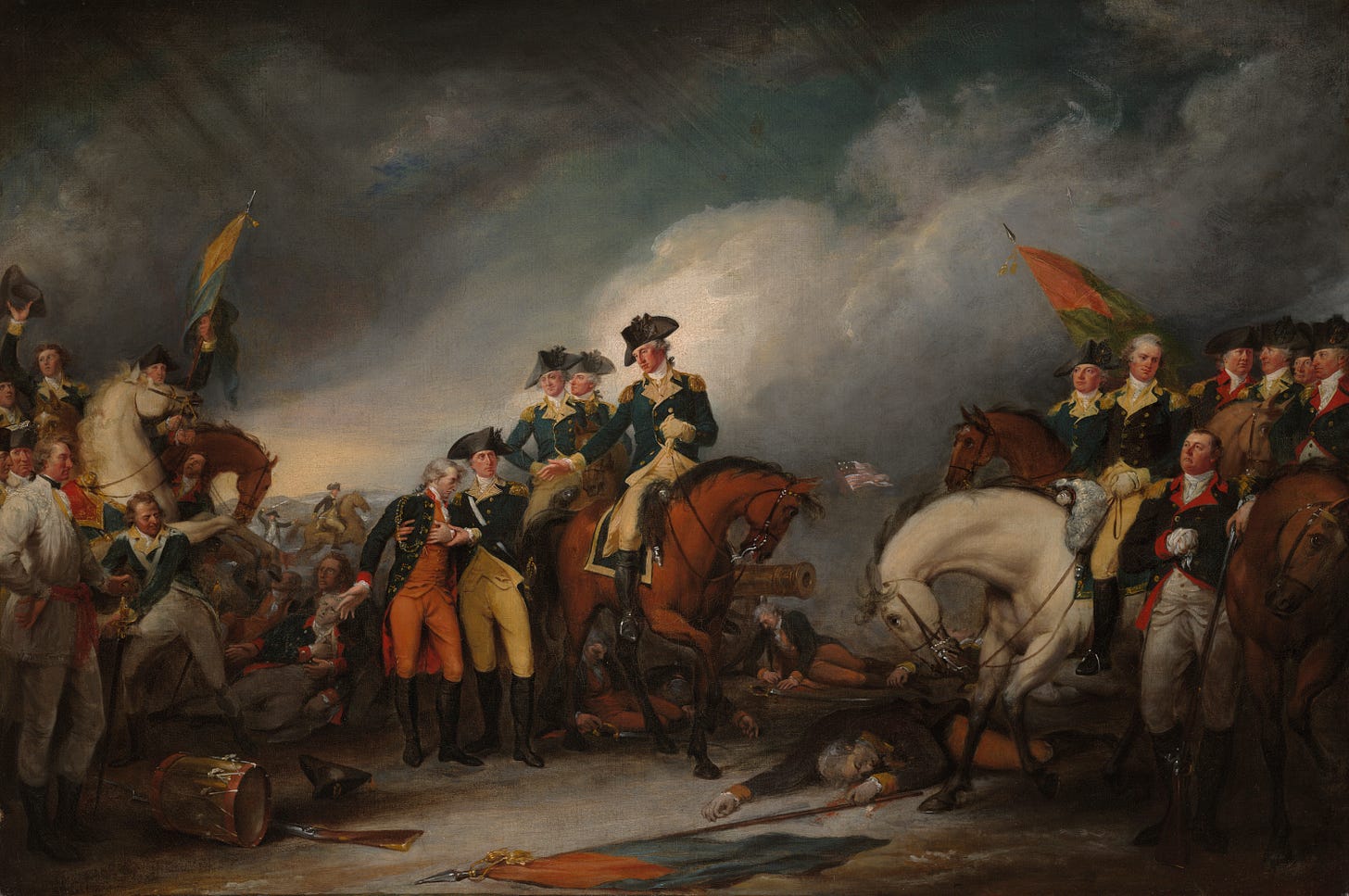
In reading about Monroe, I learned that he was very eager to serve in the cause of the Revolution. He fought in the Battle of Trenton along with George Washington and almost lost his life when he severed an artery. His service was recognized by Washington, and he was promoted to captain. Monroe looked for opportunities for further service and desired to command troops. He often faced difficulties in finding this opportunity due to lack of willing recruits. His commitment to service to his country was one that stood out throughout his life, often resulting in financial hardship.
Monroe’s Debt
Monroe lived most of his life in debt. He initially had some difficulty in finding a suitable mate as he was often overlooked due to his shyness and what some women of his time claimed as lack of attractiveness. When he finally married his wife, Elizabeth Kortright, he struggled to decide between pursuing a law career that would provide for the family and his tendency to agree to calls of public service which left him further in debt.
Throughout his life, Monroe consistently grappled with putting himself and his family first. Several times he would commit to practice in his own law firm and then be pulled by his political allies into different roles that did not provide a decent salary for him and his family. His uncle often bailed him out of these situations. Monroe ended up dying in a very dire financial situation, having to move in with his daughter in New York.
Family Life
Another personality trait that was consistent with Monroe was his dedication to his family. When men traveled during this era for business purposes, they often left their families at home. Monroe made a point of always bringing his wife and daughters along with him. Monroe was what we would call in modern times, a “girl dad.” He was an advocate for women’s education due to his passion for his daughter’s education. In a speech in 1817 to the student body of Windsor Female Academy in Vermont, he stated:
“I take a deep interest as a parent and citizen in the success of female education; and have been delighted, wherever I have been, to witness the attention paid to it.”
Presidency and Legacy
One of the stories in the book that speaks strongly to Monroe’s character is what he did during the War of 1812 when the capitol was being seized. At the time, he was serving as Secretary of War to President James Madison. Madison relied heavily upon the leadership of Monroe. At one point after the White House had been seized by the British, the author describes Madison hiding behind Monroe when Madison had been overwhelmed due to the stress of the event along with his health issues.
Monroe, similar to Washington, seemed to play a role of strength and leadership. In fact, he would have been the only other president to receive a unanimous electoral vote for his second term but William Plumer cast one vote for John Quincy Adams. According to some accounts, Plumer did this to ensure that Washington would be the only president to receive the unanimous vote.
My favorite image of Monroe that I got out of reading the book is that he would often be the only one dressed in Revolutionary style clothing while those around him in the office would be in what was considered more modern attire at the time. To me, this speaks to his symbolic role as the conclusion of the era of Founding Fathers in office.
The book emphasizes the important legacy that Monroe left behind in the Monroe Doctrine which ended European Colonialism into the Western Hemisphere as well as his dedication throughout his political career to this cause. Monroe differed from Washington and Jefferson in that he did not seem to dwell too much on the impact of slavery on the future of the United States. He was a member of the American Colonization Society, believing that the solution would be to transport free Black people and emancipated enslaved people to Africa.
Something I found interesting about Monroe is that when his wife died, he went into a deep depression, and for an unknown reason, decided to burn all of the papers she wrote. I wondered what made him decide to burn the papers, whether it was out of grief or concern for privacy. Originally, he and his wife were buried in separate cemeteries, but today, they both rest in Hollywood Cemetery in Richmond, Virginia.
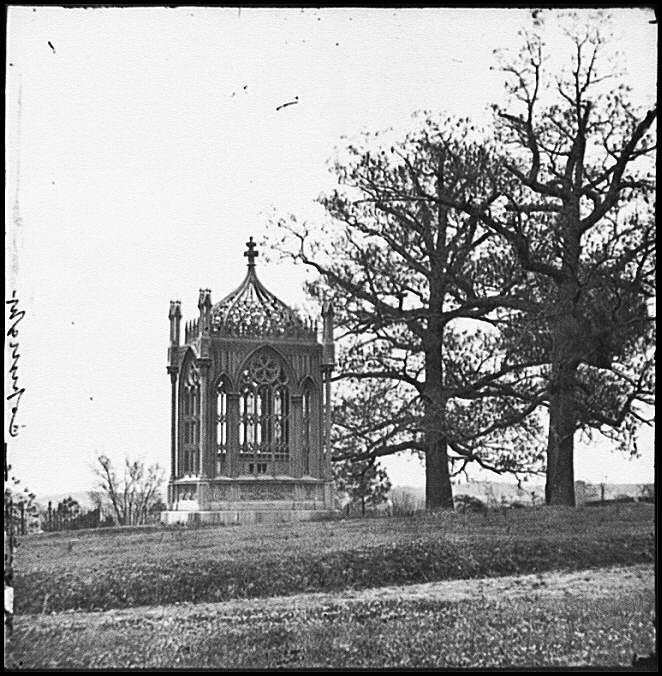
Overall I think that Monroe played a strong and essential role in the founding of our nation and without his efforts it may not have become the vast nation that we know it to be today.
Don’t forget! This Thursday (2/6) at 8pm EST we’re hosting a Zoom party for our subscribers to celebrate our one year anniversary. We sent an email with information about how to access the Zoom last Friday, and we’ll send a reminder on Wednesday. Hope to see you there!
Sources:
Unger, Harlow Giles. Last Founding Father: James Monroe and a Nation’s Call to Greatness. Da Capo. September 28, 2010.
https://jamesmonroemuseum.umw.edu/2023/03/09/james-monroe-and-the-fight-for-womens-educational-rights/
https://en.wikipedia.org/wiki/William_Plumer


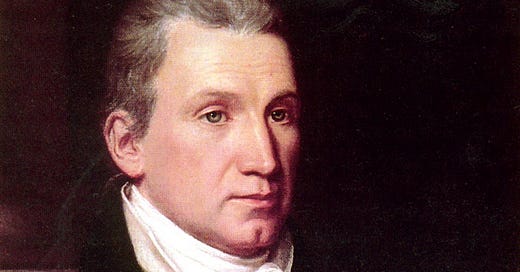



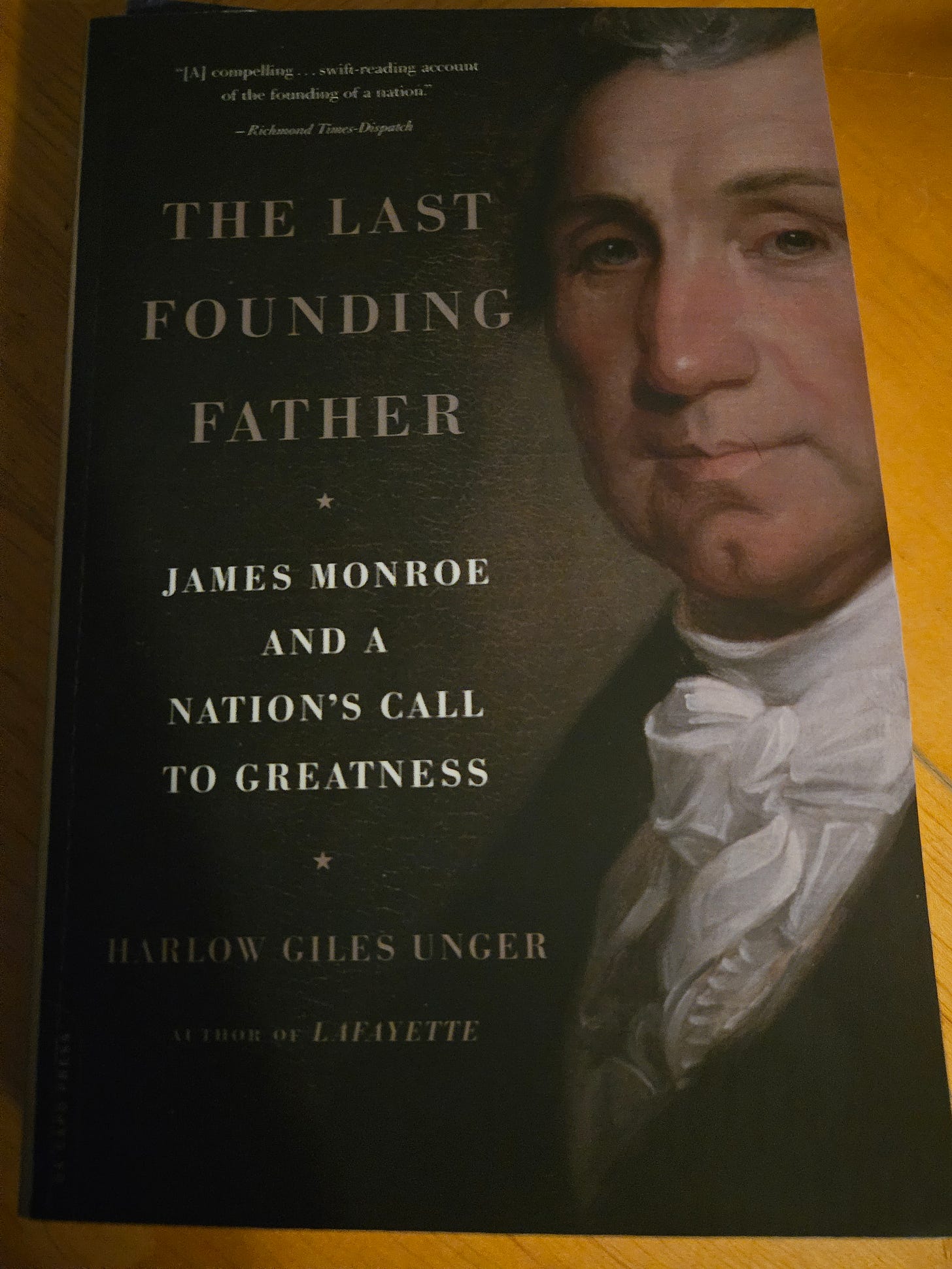
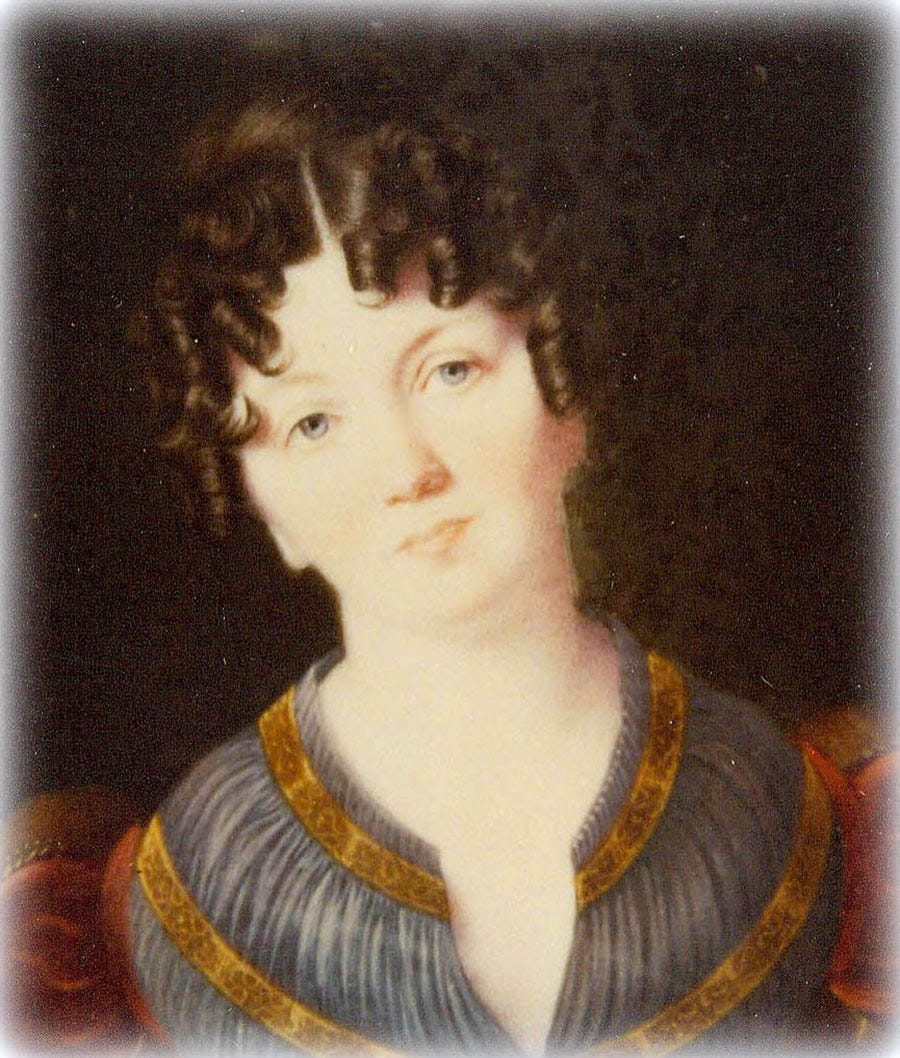

Monroe's final resting place makes me think we should look into the best grave markers for presidents because I think he would be near the top. Such a beautiful structure.
I enjoyed reading about Monroe. Though I of course do not agree with his views on slavery, I think it is too bad that we don't have leaders who generally are more interested in the welfare of our nation than their own interests today. Can you even imagine a politician being broke in our America or willing to put aside personal profit for public service?